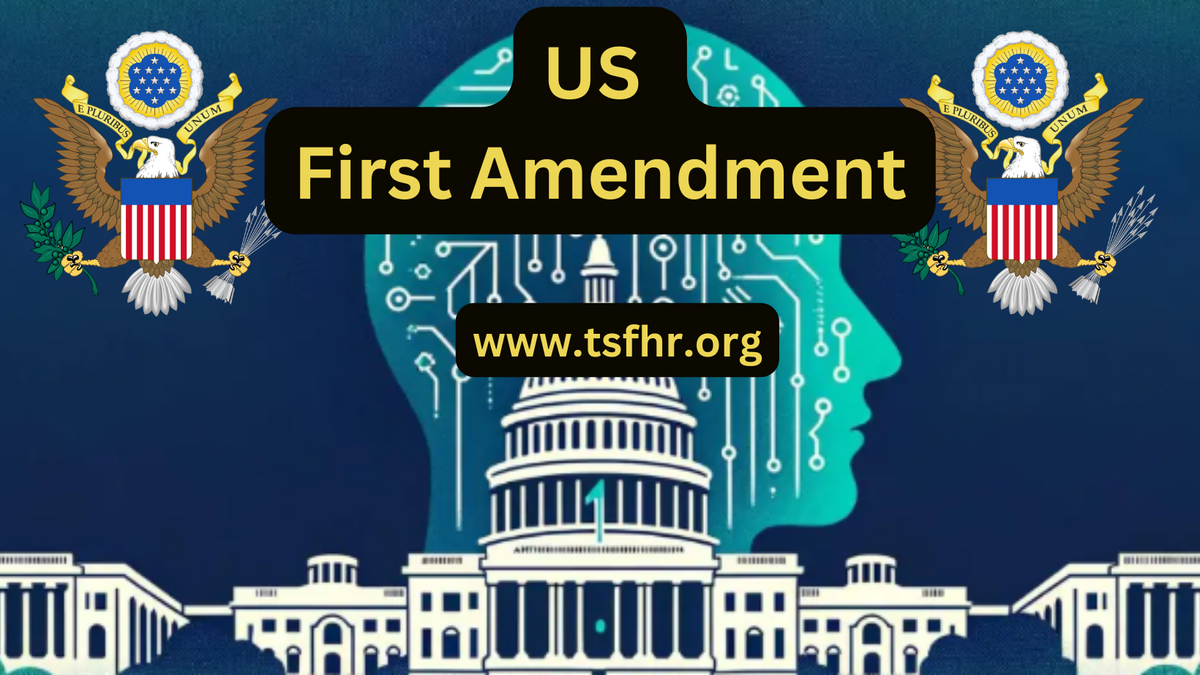What Does The First Amendment Say: (1st Amendment,first amendment, 1st amendment, amendment 1, 1rst amendment, 1 st amendment, first amendment simplified, 1st amendment rights, 1st amendment of the constitution, bill of rights 1st amendment, 1st amendment freedom of speech) Discover the importance of the First Amendment in protecting free speech, religion, press, assembly, and petition rights in 2024. Explore its impact on modern society and learn how these freedoms drive democracy and productivity.
Introduction:
The First Amendment to the U.S. Constitution is the cornerstone of American democracy. It’s the reason you can freely share your opinion, worship how you want, or even protest peacefully. Imagine a world without free speech—no social media debates, no investigative journalism, no public outcry when injustice happens. Sounds suffocating, right?
In fact, more than 70% of Americans say that free speech is essential to who they are as individuals, according to a recent Pew Research study. Yet, many still don’t fully grasp the extent of their rights under the First Amendment. In this article, I’ll break it down for you—what it guarantees, why it matters, and how these freedoms empower society and productivity, both individually and collectively.
What Does the First Amendment Say?
- The First Amendment states: “Congress shall make no law respecting an establishment of religion, or prohibiting the free exercise thereof; or abridging the freedom of speech, or of the press; or the right of the people peaceably to assemble, and to petition the Government for a redress of grievances.”
- In simple terms: It protects five key freedoms—speech, religion, press, assembly, and petition.
1st Amendment Simplified: Breaking It Down
- Freedom of Speech: You can share your opinions without government interference (as long as it’s within legal limits).
- Freedom of Religion: You can worship however you choose, or not at all.
- Freedom of the Press: The media can report stories without censorship.
- Right to Assemble: You can gather peacefully for protests or meetings.
- Right to Petition: You can demand action or change from the government.
- Human Example: When you see viral hashtags like #BlackLivesMatter or people peacefully protesting for climate change, that’s the 1st Amendment in action!
Why Is the First Amendment Important?
- It protects your fundamental freedoms and allows democracy to thrive.
- Real-world impact:
- Social Movements: Without freedom of speech, movements like the Civil Rights Movement or Women’s March wouldn’t have succeeded.
- Press Freedom: Investigative journalism has exposed scandals like Watergate, holding leaders accountable.
- Productivity Link: When people can freely share ideas and dissent, it fosters innovation and collaboration. Open dialogue has been the backbone of progress in science, politics, and business.
When Was the First Amendment Written?
- The First Amendment was written in 1789 as part of the Bill of Rights and ratified on December 15, 1791.
- Historical context: It was created to protect citizens’ rights after the American Revolution, ensuring the government couldn’t become oppressive.
- Fun Fact: The Bill of Rights originally had 12 amendments, but only 10 were ratified!
What Is the First Amendment and What Does It Guarantee?
- A breakdown of the five fundamental freedoms: speech, religion, press, assembly, and petition.
- Examples:
- Freedom of speech: Speaking out against government policies.
- Freedom of the press: How journalism holds power accountable.
- Why this was included in the Constitution: A brief historical background on its creation.
Why the First Amendment Matters in Today’s World
- How the First Amendment empowers modern democracy.
- Real-world examples: Social media activism and global movements (e.g., Black Lives Matter).
- Whistleblowers like Edward Snowden and the role of a free press.
- Productivity Link: The right to express ideas without fear encourages innovation, critical thinking, and open dialogue—essential for growth in business, politics, and personal life.
Free Speech in the Digital Age: Opportunities and Challenges
- How social media amplifies free speech and fosters global connection.
- The balance between free speech and misinformation.
- Real data: Over 90% of teens use social media as their primary communication tool (Common Sense Media report).
- Human Touch: As a writer, I’ve seen how free speech online sparks creativity but also calls for responsibility.
The First Amendment and Religion: Protecting Diversity
- Understanding the freedom to practice (or not practice) religion.
- Examples: The impact of religious diversity in the U.S. workplace.
- Recent Supreme Court cases protecting religious freedom.
- Productivity Link: A diverse, inclusive society fosters creativity and collaboration by respecting different beliefs and values.
Freedom of Assembly and Petition: Driving Social Change
- How peaceful protests have influenced history (e.g., Civil Rights Movement).
- Case studies: The Women’s March (2017).
- Climate strikes led by youth like Greta Thunberg.
- Human Touch: Even small gatherings, like community meetings, show how collective action can drive change.
How the First Amendment Protects Journalism and Information Access
- Why a free press matters for an informed society.
- Examples: Investigative reports that exposed corruption or injustice.
- Real data: Over 60% of Americans believe journalism keeps politicians honest (Gallup survey).
Common Misconceptions About the First Amendment
- Clarifying myths:
- “Free speech means I can say anything without consequences.”
- “It protects me on private platforms.”
- Why understanding these nuances matters.
Why the First Amendment Drives Productivity and Innovation
- The role of free expression in driving creativity, new ideas, and breakthroughs.
- Business case: Tech companies thrive when diverse opinions are shared openly.
- Human Example: How I’ve seen free brainstorming sessions lead to creative solutions.
Conclusion:
The First Amendment is not just a legal document; it’s the backbone of individual and collective freedom. It ensures that you can speak up, worship, gather, and hold those in power accountable. Without it, innovation would suffer, and progress would stall.
So the next time you express yourself—whether it’s through art, protest, or a viral tweet—remember: the First Amendment is working for you. Cherish it, protect it, and use it to make a difference!
